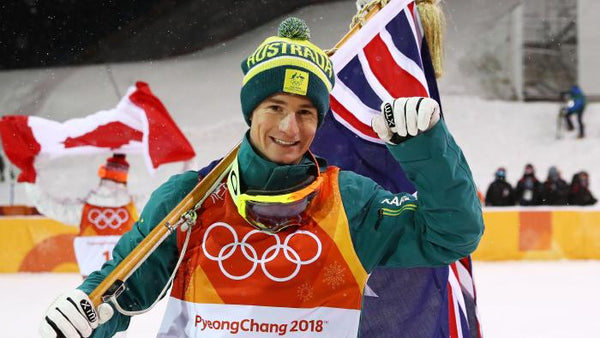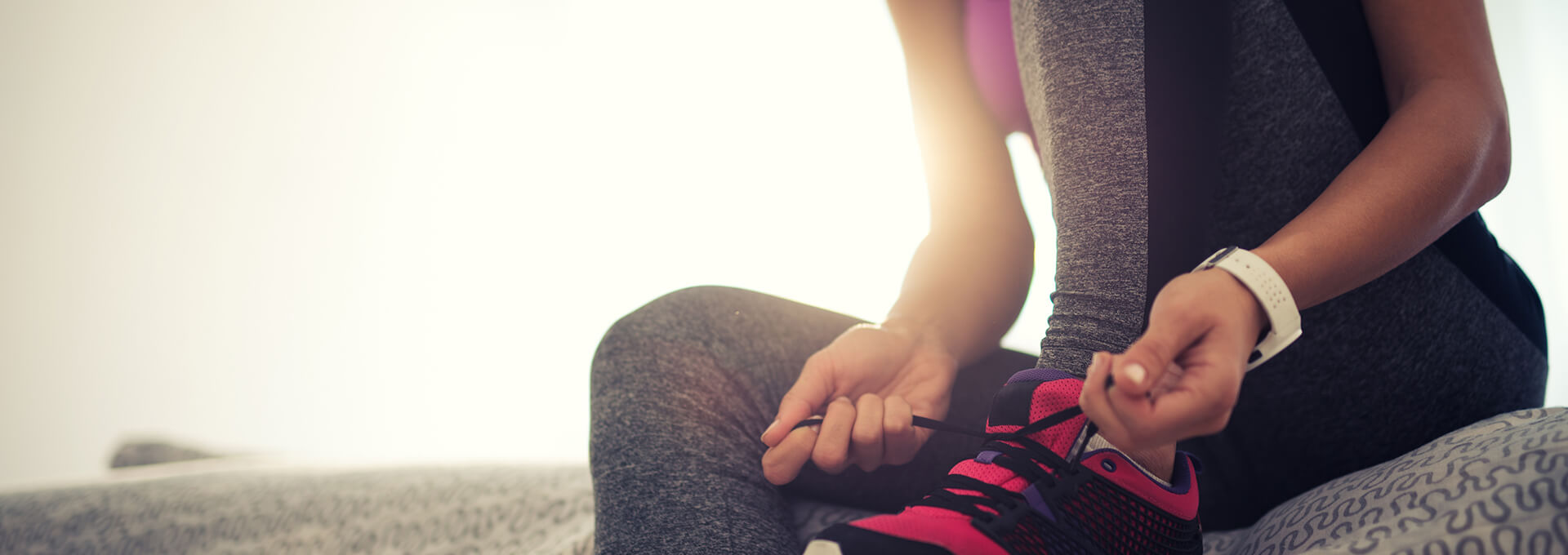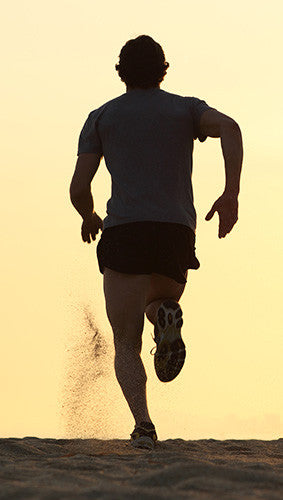How to sleep like an Olympian:
5 lessons we learned from the 2018 Winter Olympics

Australia's Pat Graham after winning silver in the men's moguls at the 2018 Winter Olympics
Photo finishes, world records, unbelievable comebacks and fearless newcomers. The 2018 Winter Olympics celebrated sport and its athletes in all their glory – and often enough we stare at the monitors thinking these guys simply must have some superhuman genes… But what we usually don’t see, is the all the dedication, determination and hard work that goes into an athlete’s performance. A big part of this is, of course, physical training - be it in the gym, on the treadmill or on the respective field of play. However, behind all their weights, endurance training and psychological preparation, a less obvious factor powers Olympian’s performances: SLEEP.
Sleep is not only the very best hobby in the world (at least according to our team), but truly essential for success when these athletes compete with the world’s greatest for the Olympic gold medals. It is not regarded as empty time or a break from training – no, it is active recovery that affects metabolism, hormonal balance, mindset and athletic performance. During sleep, we not only build strength and recover from injury by stimulating the healing and growth of muscle and bone (as well as burning fat!!), but a good night’s rest also helps memorise movements, optimise reaction time or mind-body coordination.
“I love sleep”, three-time Olympic medallist in alpine skiing Lindsey Vonn tells CNN, “I am a good sleeper, I take naps every day, I try to sleep at least 10 hours at night. The more I sleep, the better recovered I am. At my age, it takes longer to recover so as much sleep as I can get is beneficial."

Image courtesy of Lindsey Vonn (Instagram @lindseyvonn)
And even if you are not an elite athlete, the inglorious sleep is still essential for optimal health and daily performance. Start sleeping like an Olympian and read up on our top 5 sleep learnings from the 2018 Winter Olympics.
1. Knock it in: 7+ hours a night – consistently!
An adult does need at least seven hours of sleep per night – not only to avoid the health risks of chronic inadequate sleep but also to maintain and even improve your daily performance. However, for athletes, Cheri Mah, who led studies at Stanford University Sleep Disorders Clinic and Research Laboratory, recommends eight to ten hours plus every night. Her studies showed when athletes increased sleep time (with a goal of 10 hours of sleep every night for five weeks), their athletic performance, as a matter of fact, improved. Basketball and tennis players achieved better sprint results, even the accuracy of shots improved for both sports! But be aware that locking in those precious hours of sleep only before important events (or going full sleep one month and totally deprived the other!) is not the key to sleeping like an Olympian. The athlete’s sleep pattern, meaning how they have slept in the weeks, months or even years prior to the games, will affect their efforts. Consistency is the magic word here and this comes with maintaining a regular bedtime and wake-up time. Our bodies work better with regularity and the anticipation of sleep makes you fall asleep easier too. So, whether you’re an Olympic champion or not, prioritizing sleep may improve your performance and health, regardless of your field of play.
Lessons:
- 7-9 hours of snoozing every night
- Regular bedtime and wake-up times
2. Sleep hygiene – let us explain…
Deep down, we all know that excessively scrolling through our social feeds minutes before falling asleep can’t be good – the bright light from all sorts of screens interferes with the body’s circadian rhythm and keeps us awake; it truly is the exact counterpart of winding down for bedtime. Consider using your bed for sleeping, and sleeping only – meaning no computer work or TV watching from bed! Even during the Olympics rooms were equipped with a desk and comfortable chair to encourage athletes not to work in bed. Before going to bed, incorporating a twenty to thirty-minute wind-down phase, reading a book, meditation, stretching or yoga will help you fall asleep faster and stay asleep.
Lessons:
- Put down your electronics 30 minutes before bed and implement a wind-down routine
- Use your bed for sleep only
3. Get onto your sleep environment
You know that when the US Olympic committee enlists a sleep specialist and former NASA scientist, Mark Rosekind) to redesign the rooms of the Olympic Training Centre, there has to be something pretty important about it… It’s all about providing athletes with the maximum best sleeping conditions, in short, making their rooms cave-like. Comfort, darkness, quietness and temperature are the three most important ingredients for a good night’s sleep. Try blackout curtains or sleep masks, earbuds or earplugs and set the room temperature to a comfortable degree (usually between 18-20 degrees) – and for comfort, of course, we can only recommend our Juno mattress…
Lessons:
- Keep your bedroom like a cave: quiet, dark and cool
- Invest in a comfortable mattress that helps you recover while you sleep
4. We always knew it… Napping is not a crime
Power naps are amazing, but only if you leave them short, recommended are twenty to thirty-minute naps. Otherwise, you can go into deeper stages of sleep, and once you wake up, you may experience sleep inertia, where you feel more sluggish and worn down. Scientist Mah even says “For athletes, I do recommend pre-game naps. Naps can give you a temporary improvement in alertness and performance for a few hours. If you’re having difficulty with your sleep, you should eliminate naps.” Naps, however, should not be a replacement for consolidated healthy sleep at night time but add-ons to your regular 8-10 hours of sleep.
Lessons:
- Naps (20-30min) can make you more alert, help your memory and boost your mood
- Don’t substitute a night’s sleep with naps
5. Keep sleeping natural and reduce alcohol and caffeine
We’re sure you’ve experienced this already… Sitting on a deadline late at night and sculling the last cup of coffee around 9pm – not the best idea considering the insomnia that will haunt you in the early morning hours. Caffeine has a half-life of about six hours so it’s best to have the last cup around 5pm to ensure you rest up during the night, similar counts for alcohol – which makes you drowsy at first but leads to lower blood levels and hence waking up after a few hours of sleep. The World Anti-Doping Agency (NADA) removed caffeine from its list of banned substances in 2004, however, athletes – and we! – still need to understand the effects of caffeine and energy drinks on sleep. The danger of creating a vicious cycle by using caffeine as a performance enhancer and then needing to take medications to help with sleep is present and effects of serious sleep deprivation shouldn’t be underestimated. We believe in the good old cuppa tea and your individual wind-down routine…
Lessons:
- Say no to coffee in the evenings
- Try to stay away from sleep medications - Drink chamomile or peppermint tea before bedtime
Sources:
https://www.universityofcalifornia.edu/news/how-sleep-pro-athlete https://edition.cnn.com/2018/01/09/sport/train-like-an-olympian/index.html https://www.onemedical.com/blog/newsworthy/sleep-lessons-olympians/





